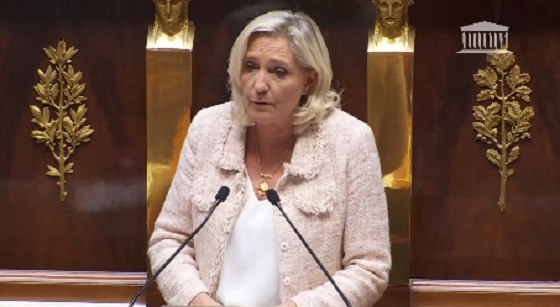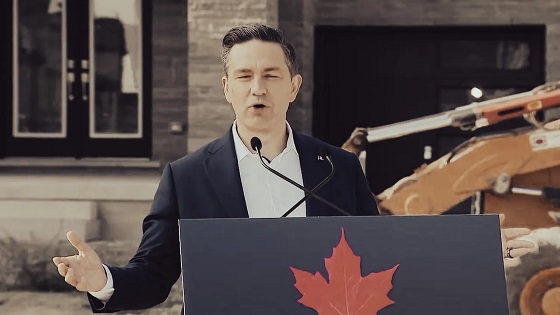Energy
Poilievre vows to introduce non-confidence motion if Trudeau doesn’t scrap carbon tax hike
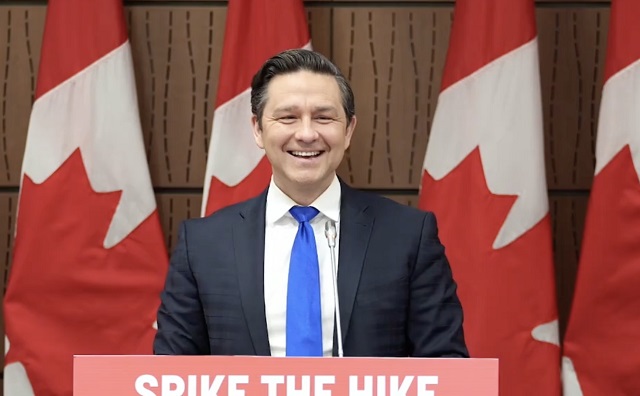
From LifeSiteNews
Pierre Poilievre’s pledge for a motion of non-confidence comes as Trudeau continues to refuse to pause his April 1 carbon tax hike despite 70% of Canadians and 70% of provincial premiers opposing the increase.
Conservative Party leader Pierre Poilievre has promised to put forward a non-confidence motion to oust Prime Minister Justin Trudeau if he refuses to scrap the carbon tax hike slated for April 1.
During a March 20 Conservative caucus, Poilievre announced that he will introduce a non-confidence motion to force a “carbon tax election” if Trudeau refuses to scrap the 23 percent carbon tax increase scheduled for April 1.
“Today I am announcing that I am giving Trudeau one last chance to spike his hike. One last chance and only one more day,” Poilievre said.
“If Trudeau does not declare today an end to his forthcoming tax increases on food, gas and heat, that we will introduce a motion of non-confidence in the prime minister,” he promised.
Poilievre’s motion warns “that the House declare non-confidence in the Prime Minister and his costly government for increasing the carbon tax 23% on April 1, as part of his plan to quadruple the tax while Canadians cannot afford to eat, heat and house themselves, and call for the House to be dissolved so Canadians can vote in a carbon tax election.”
Poilievre told Trudeau that he has until Thursday to rescind the coming hike, explaining that the tax increase will only increase food prices for already struggling Canadian.
“A 23% increase on your gas, your heat and your groceries, because if you tax the farmer who makes the food, the trucker who ships the food, you tax all who buy the food,” Poilievre declared.
“Canadians are good and decent people,” he added. “They do not have to live like this. They should not have to give up on the things that we all used to take for granted like affordable food and homes all for the ego and incompetence of one man.”
Poilievre also addressed Trudeau’s claim that Canadians receive more in rebates than they pay with carbon tax, citing figures from the Parliamentary Budget Office.
According to the March report by the PBO, the government rebates are insufficient to cover the rising costs of fuel under Trudeau’s carbon tax, leaving Canadians to pay the balance.
“I go into this painful excruciating detail to debunk the dangerous disinformation mouthed by the Prime Minister and repeated by the media,” he explained.
“Life was not like this before Justin Trudeau, it will not be like this after he is gone,” he promised. “We’re going to replace the hurt that he has caused with the hope that Canadians need.”
Poilievre’s promise comes as Trudeau recently repeated his refusal to pause the carbon tax hike scheduled for April 1 despite appeals from seven of ten provincial premiers, and polls suggesting 70 percent of Canadians also oppose the hike.
Energy
The IEA’s Peak Oil Fever Dream Looks To Be In Full Collapse
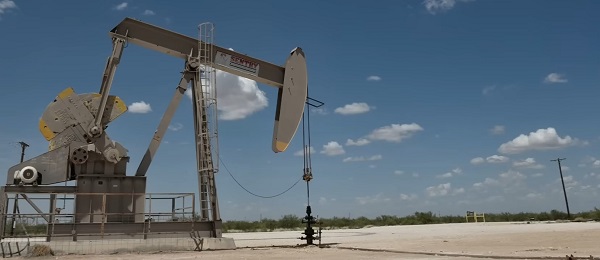

From the Daily Caller News Foundation
U.S. Energy Secretary Chris Wright warned International Energy Agency (IEA) head Fatih Birol in July that he was considering cancelling America’s membership in and funding of its activities due to its increasingly political nature.
Specifically, Wright pointed to the agency’s modeling methods used to compile its various reports and projections, which the Secretary and many others believe have trended more into the realm of advocacy than fact-based analysis in recent years.
That trend has long been clear and is a direct result of an intentional shift in the IEA’s mission that evolved in the months during and following the COVID pandemic. In 2022, the agency’s board of governors reinforced this changed mission away from the analysis of real energy-related data and policies to one of producing reports to support and “guide countries as they build net-zero emission energy systems to comply with internationally agreed climate goals” consistent with the Paris Climate Agreement of 2016.
Dear Readers:
As a nonprofit, we are dependent on the generosity of our readers.
Please consider making a small donation of any amount here.
Thank you!
One step Birol and his team took to incorporate its new role as cheerleader for an energy transition that isn’t actually happening was to eliminate the “current policies” modeling scenario which had long formed the base case for its periodic projections. That sterile analysis of the facts on the ground was replaced it with a more aspirational set of assumptions based on the announced policy intentions of governments around the world. Using this new method based more on hope and dreams than facts on the ground unsurprisingly led the IEA to begin famously predicting a peak in global oil demand by 2029, something no one else sees coming.
Those projections have helped promote the belief among policymakers and investors that a high percentage of current oil company reserves would wind up becoming stranded assets, thus artificially – and many would contend falsely – deflating the value of their company stocks. This unfounded belief has also helped discourage banks from allocating capital to funding exploration for additional oil reserves that the world will almost certainly require in the decades to come.
Secretary Wright, in his role as leading energy policymaker for an administration more focused on dealing with the realities of America’s energy security needs than the fever dreams of the far-left climate alarm lobby, determined that investing millions of taxpayer dollars in IEA’s advocacy efforts each year was a poor use of his department’s budget. So, in an interview with Bloomberg in July, Wright said, “We will do one of two things: we will reform the way the IEA operates, or we will withdraw,” adding that his “strong preference is to reform it.”
Lo and behold, less than two months later, Javier Blas says in a September 10 Bloomberg op/ed headlined “The Myth of Peak Fossil Fuel Demand is Crumbling,” that the IEA will reincorporate its “current policies” scenario in its upcoming annual report. Blas notes that, “the annual report being prepared by the International Energy Agency… shows the alternative — decades more of robust fossil-fuel use, with oil and gas demand growing over the next 25 years — isn’t just possible but probable.”
On his X account, Blas posted a chart showing that, instead of projecting a “peak” of crude oil demand prior to 2030, IEA’s “current policies” scenario will be more in line with recent projections by both OPEC and ExxonMobil showing crude demand continuing to rise through the year 2050 and beyond.
Whether that is a concession to Secretary Wright’s concerns or to simple reality on the ground is not clear. Regardless, it is without question a clear about-face which hopefully signals a return by the IEA to its original mission to serve as a reliable analyst and producer of fact-based information about the global energy situation.
The global community has no shortage of well-funded advocates for the aspirational goals of the climate alarmist community. If this pending return to reality by the IEA in its upcoming annual report signals an end to its efforts to be included among that crowded field, that will be a win for everyone, regardless of the motivations behind it.
Energy
Trump Admin Torpedoing Biden’s Oil And Gas Crackdown
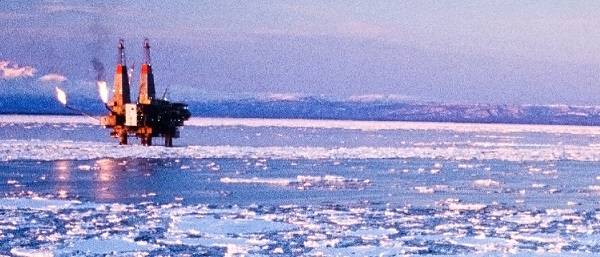

From the Daily Caller News Foundation
By Audrey Streb
The Trump administration is rolling back President Joe Biden’s restrictions on oil and gas, planning 21 lease sales in 2025 — a sharp contrast to Biden’s first year, which saw none.
The Department of the Interior (DOI) and the Bureau of Land Management (BLM) have already held 11 lease sales under Trump generating over $110 million for Americans, and plan to host 10 more in 2025, the agency told the Daily Caller News Foundation. While the Biden administration imposed a sweeping offshore drilling ban and greenlit a record-low offshore oil and gas leasing schedule, the Trump administration is working to reopen development on federal lands and waters.
“President Donald Trump has revived American energy. While the Biden administration left our energy resources to waste at the cost of taxpayers, Americans can feel relief knowing that they now have an administration laser focused on unleashing our domestic energy sources, lowering costs, and securing a more affordable and reliable energy future,” Interior Secretary Doug Burgum told the DCNF. “The number of new oil and gas lease sales simply speak for themselves.”
Bureau of Land Management (BLM) has reported 3,608 new oil and gas permits in Trump’s second term thus far, compared to 2,528 permits during the Biden administration, according to the DOI. Trump and the DOI have approved 43% more federal drilling permits than his predecessors had at the same point in their presidencies, according to the agency.
The DOI has also opened more than 450,000 acres of federal land for potential energy development, and the DOI and BLM are set to approve more drilling permits than any other fiscal year in the past 15 years, the agency said.
On his first day back in the Oval Office, Trump signed an executive order to “unleash American energy” and declared a national energy emergency. The One Big Beautiful Bill Act (OBBBA) further directed the DOI to open more domestic energy exploration opportunities, ordering the agency to “immediately resume onshore quarterly lease sales in specified states.”
Trump has emphasized bolstering conventional resources, which stands in contrast to Biden’s stifling of the oil and gas industry, as he froze liquified natural gas (LNG) exports, blocked the major Keystone XL pipeline and halted BLM lease approvals on his first day as president. Biden instead championed a green energy agenda, pushing for major wind and solar projects through billions in subsidies, loans and grants.
Notably, the National Oceanic and Atmospheric Administration (NOAA) previously confirmed to the DCNF that the Biden administration failed to adequately review the environmental impacts of certain offshore wind projects before approving them. The Trump administration has cracked down on offshore wind, halting many major projects and reviewing several more, with Burgum arguing that the energy resource the Biden administration favored is “not reliable enough” at an event on Sept. 10.
Additionally, gasoline prices have been dropping nationally in recent months, with costs hitting four-year lows headed into summer and Labor Day weekend, according to GasBuddy and the American Automobile Association. The average retail price for gasoline is projected to keep dropping due to falling oil prices, according to data from the Energy Information Administration.
“[Oil] prices are not set by current supplies. They’re set by future expectations,” Diana Furchtgott-Roth, director of the Heritage Foundation’s Center for Energy, Climate, and Environment, told the DCNF previously. “President Donald Trump is sending signals that the oil industry here is going to be very vibrant. He’s shrinking permitting time for fossil fuel projects, so expectations for fossil fuel supply in the United States are great.”
-
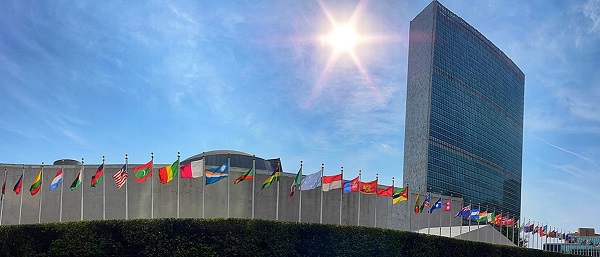
 Daily Caller2 days ago
Daily Caller2 days agoTrump Admin To Push UN Overhaul Of ‘Haphazard And Chaotic’ Refugee Policy
-
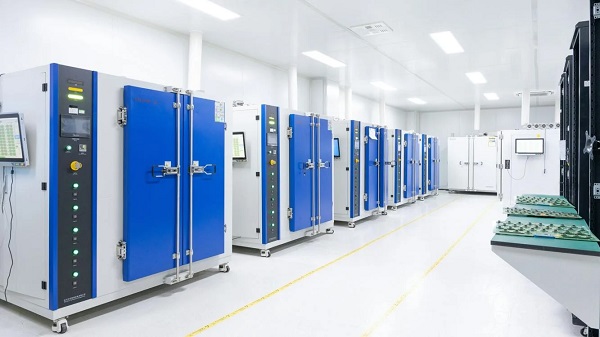
 Artificial Intelligence2 days ago
Artificial Intelligence2 days agoWhat are data centers and why do they matter?
-
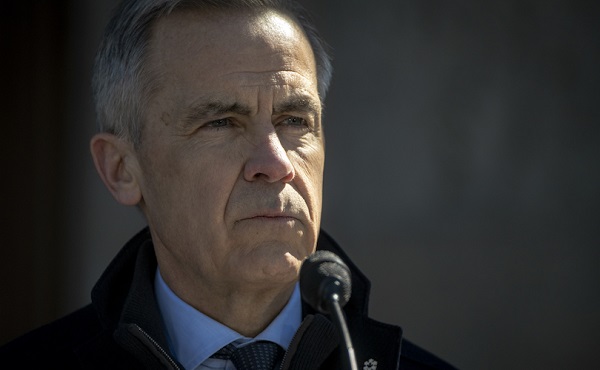
 Business1 day ago
Business1 day agoCarney’s Ethics Test: Opposition MP’s To Challenge Prime Minister’s Financial Ties to China
-

 Business2 days ago
Business2 days agoCarney Admits Deficit Will Top $61.9 Billion, Unveils New Housing Bureaucracy
-

 Business1 day ago
Business1 day agoAttrition doesn’t go far enough, taxpayers need real cuts
-

 Business1 day ago
Business1 day agoCarney government’s housing GST rebate doesn’t go far enough
-

 Media1 day ago
Media1 day agoCancel culture wins ultimate victory as murder of Charlie Kirk ghoulishly celebrated by radical Left, media included
-

 Alberta1 day ago
Alberta1 day agoBreak the Fences, Keep the Frontier


